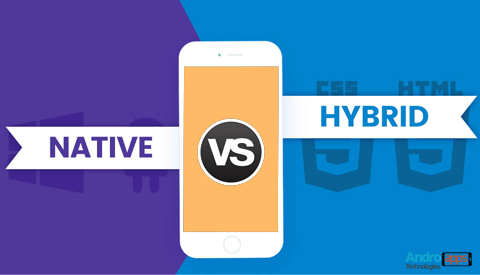Native vs. Hybrid Apps
Let's Talk
Hybrid Apps | Mobile App Development | Native Apps
Native vs. Hybrid Apps: Which Should You Develop?
What is the difference between a native application and a web application?
A native application is a piece of software that only runs on a mobile platform. They improve an app's performance and are compatible with cutting-edge technologies. They can only be written in the programming language of a particular operating system since they are operating system specific (such as JAVA for Android or Swift for iOS). Native applications have the advantage of utilising the vast majority, if not all, of a user's device's built-in capabilities. You're using Native applications customised specifically for your device when you send or receive text messages or listen to music on your device using the device's music app (Apple Music for iPhones).
Native Applications' Benefits
Native mobile applications are more accurate and respond quickly to user queries. They can also quickly access the device's UI, which means that all of an application's controls and layouts can be tailored specifically for each device. The following are some of the benefits of adopting Native Apps for iPhones.
App development company Mumbai
User experience is improved by a simple yet speedy performance.
· Ratings in the App Store (for iPhones)
· the Google Play Store (for Android devices)
· ensure quality testing ( for Androids)
· For some programmes offline compatibility is available.
Therefore, you must choose the best App Developer in India for technological support.
Hybrid Applications
A hybrid application combines the greatest features of both worlds (i.e. Native Apps and Web Apps). Hybrid Apps have the appearance and functionality of native apps, but they are a website that has been packaged differently using web technologies like JavaScript, HTML, and CSS. These Apps, like Native Apps, can be downloaded into a user's system and then used to access a wide range of a device's functions via APIs (application programming interfaces). Furthermore, Hybrid apps work in a similar way to web applications since they are, at their foundation, web applications.
The only distinction is that a hybrid app can be downloaded to a user's device, but a web app can only be accessed through a web browser. The following are some of the most prevalent characteristics of a hybrid application:
· The same programme may run on numerous devices and operating systems thanks to a cross-platform user interface.
· They are compatible with web-based services.
When properly created, a Hybrid application may mimic the functionality of a Native app, which is why most social media platforms like Twitter and Instagram, as well as service providers like Uber, prefer to deal with Hybrid apps over Native apps. However, before you decide to construct a hybrid app, you should be aware of its benefits and drawbacks, as well as how picking one over the other may affect your Android app development. This was all about Native Vs Hybrid Apps.